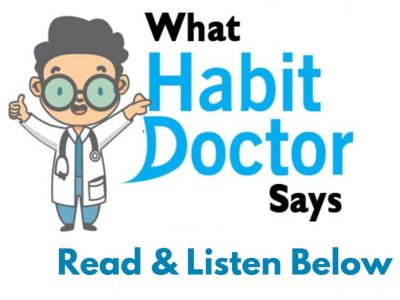Behaviour is said to be an action that can observe and measure. Behaviour can be observable in the sense that what we see or hear, such as a student walking, standing up, sitting, speaking, listening, yelling, or writing etc… Example, a student may show anger by making a face, yelling, crossing his arms, crying etc.
This is also the way in which an animal or person behaves in response to a particular situation. It can be referred to as an organism’s activities in response to external or more restrictively, any action or function that can be objectively observed or measured in response to controlled stimuli. Historically, behaviourists compared objective behaviour with mental activities, without thinking.
In the study on human behaviour, it has revealed that 90% of the population can be classified into four basic personality types: They are – Optimistic, Pessimistic, Trusting and Envious. And it is noticed that the personality ‘Envious’, is the most common, with 30% compared to 20% for each of the other groups.
What ethnologists—mean by the word “behaviour?” It is clear that this is an important question and one that ethnologists have struggled with for some time. Early ethnologists defined behaviour as “the total movements made by the intact animal,” rather than a normal definition, it included almost everything that an animal can do.
- Behaviour is “Externally visible activity of an animal, in which a coordinated pattern of sensory, motor and associated neural activity responds to changing external or internal conditions” (Beck et al. 1981)
- Behaviour is “A response to external and internal stimuli, following combination of sensory, neural, endocrine, and effectors components. Behaviour is said to have a genetic base, so it is subject to natural selection, and can be modified through experience”
- Behaviour is said to be an “activity of an organism that is observable, and is anything than an organism can do that involves action or response to arousing”
- Behaviour is “What an animal does”?
Each of these has its positives and negatives. If “the behaviour has a genetic base,” which it certainly does in many cases, does that mean that we should keep out all actions that do not have a clear fundamental genetic base when we speak of behaviour? Surely not, for any of the explanations above we could create equally strong objections. 1) What can be captured that most modern ethnologists and behavioural ecologists interact within the national and international behaviour meetings, when they use the term behaviour, 2) it gives an important distinction between organ and organism. As e.g.:- sweating because of increasing body temperature is not stated as a behaviour, but when an animal moves to the shade in response to heat and its own sweating, most ethnologists would agree that this is a behavioural response, and the definition propose above is in line with this interpretation.
Behavioural psychology is concerned with the conditions involved in the development, maintenance, control, and elimination of the behaviour of individuals and other organisms. Behavioural approaches have been developed in many areas of applied psychology.
Behaviour is central to many fields, but metatheoretical definitions specifying the most basic assumptions about what is considered behaviour and what is not are largely lacking. This interdisciplinary research investigates the challenges in explaining behaviour, pointing up anthropocentric biases and a frequent lack of differentiation from physiological and psychical phenomena. To face these challenges, the article is defining a metatheoretical definition of behaviour that is applicable over disciplines and allows behaviours to be differentiated from other kinds of circumstances. This explanation is used to traverse the phenomena of language and to survey whether and under what conditions language can be considered a behaviour and why. The metatheoretical concept of two different levels of meaning cede in human language is introduced, highlighting that language innately depends on behaviours and that the content of what-is-being-said, itself, can constitute (interpersonal) behaviour under certain conditions. The analyses disclose the ways in which how language meaningfully extends human’s behavioural possibilities, making it move away from anything that enabled by non-language behaviours. These theoretical concepts can be complemented and expanded on existing theories about behaviour and language and can hand out a piece of theoretical explanation regarding the pivotal role that language has played in human evolution.
In conclusion, it is clear that “Behaviour is always above knowledge as there are different situations in life where knowledge fails but behaviour can still exist.”



HabitsDoctor, you’re like a fitness architect, designing blueprints for a healthier life. Your posts are the construction manual.